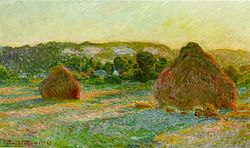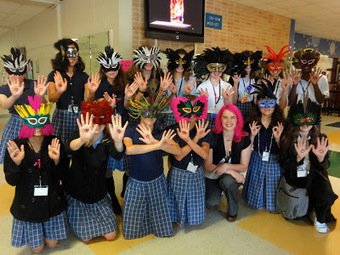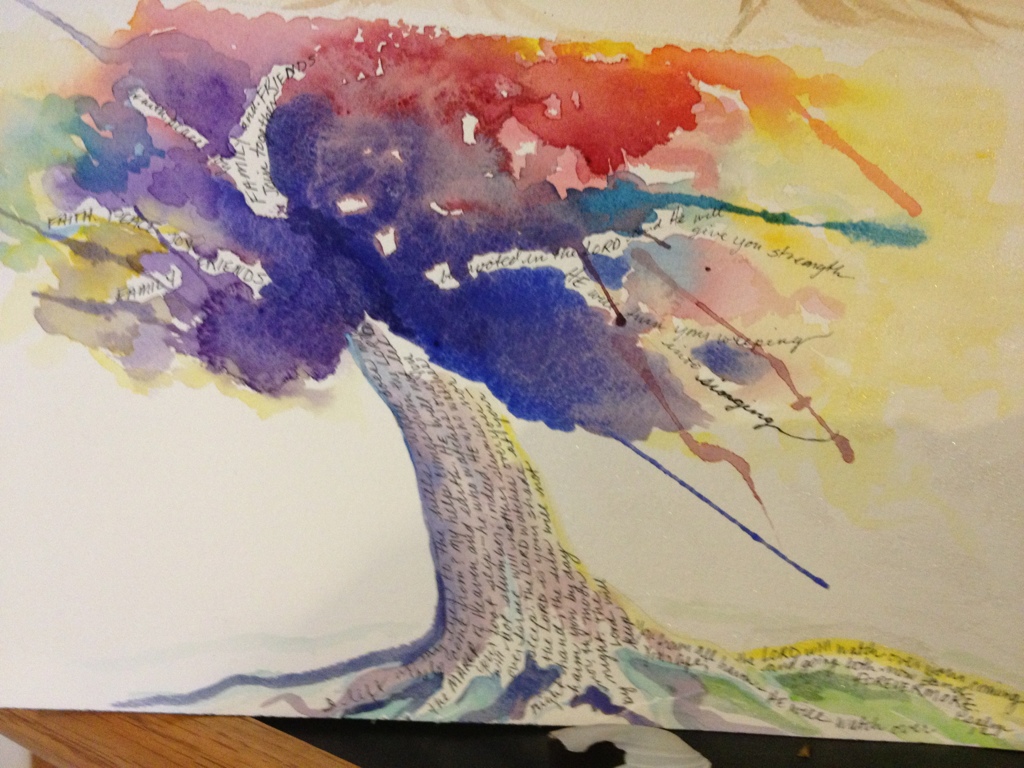It’s that time of year again: end of the old, start of the new. Time to look back at what was and look forward to what you want see happen in the new year. Writing and writers are no different. What went well–or not so well. What resolutions do we have for our writing in the year 2013?

Jane at home
This year I resolve to fight more dragons.
You know the kind–those fears that keep you from doing the thing you love, like writing. Whether you call them gremlins, like Tricia McDonald does in her book, Quit Whining, Start Writing, dinosaurs, like Don Fry in his article, Doing away with Dinosaurs (The Writer, January 2013), or demons as does Craig English (Set Your Writing Free, The Writer, October 2012)–those fears can become so adapt at disguising themselves as mundane things that sometimes we don’t even see them for what they are.
For example, in 2011 I lost my morning writing routine due to a change in the family schedule. For 1 1/2 YEARS I have blamed that as the reason why I was writing less. Dragon.
This past year my job has become a lot more demanding. There is always homework and chores to do and somehow I don’t have time or energy for writing. Dragon.
And I really, really need to exercise more. Everyone knows how important it is to get enough exercise. Dragon.
So the first step in fighting dragons is to recognize them as such. That cleaning your room when you said you were going to write–could it be a dragon in disguise? And what might that dragon be?
Craig English talks about the difference between Original Demons and Intimate Demons.(Set Your Writing Free, pg. 35) Original Demons are those basic human fears. Intimate Demons are more specific to a certain project–or chapter, or scene, or area of writing like dialog or outlining.
Are you avoiding writing in general because you are afraid of failing? Are you hearing a voice in your head saying, You can’t write–you have no talent.? Or Writing is a waste of time, or you’ll never get published because you’re not good enough? Those are Original Demons, or Gremlins –“the self-doubting, pessimistic, obnoxious part of us.” (Quit Whining, Start Writing: A Novelist’s Guide To Writing, pg. 27).
I’m afraid that what I write will not be as good as it is in my head–so I avoid putting it into words because that way, I won’t fail. Small problem–no one can read it in my head. The longer I avoid sitting down and writing, the bigger the dragon gets. Pretty soon, the second I sit down to write (or even think about it) my mind tosses out all sorts of distractions. Facebook, laundry, reading (although it’s really good for writers to read, many times it is a dragon in disguise for me), research, even this website.
Intimate demons for me are revision, outlining, and endings. I’m a big picture person much more than a detail person. Revision and outlining are more detail type activities–and therefore I am no good at them. (Or at least that is what those dragons tell me.) Endings, well, who knows. Maybe it is linked into my reluctance to let anything go. Just look at my office or closet and you’ll see I have a problem with that.
Second step is to acknowledge your dragons. “Invite them in for tea,” Craig English says. “Do something physical to get rid of them,” Tricia McDonald advises. Alcoholics Anonymous has people introduce themselves by admitting out loud that they are an alcoholic. Not that I’m advising you to go around introducing yourself by saying, “Hi, I’m Sarah McElrath and I’m afraid of failing.” But you could if it helped. At least acknowledge it to yourself. Recognize and admit.
Third step is the hardest, of course. Over-rule. Fight the dragons. Tell the demons to shut up. Draw the gremlin and then throw it away. Write.
When Christmas break started, I was all gung-ho to write. I was finally going to finish The Mary Monologue which I had started over a year ago. (Remember? I have a problem with endings.) But somehow, there was never time to write. Parties, shopping for gifts, cleaning the house–I was way too busy. Of course, I had time to watch movies and sleep in and read. Oh-oh. Dragon.
It wasn’t until I read about The Personal Scum Line in Laurence Gonzales’s book, Surviving Survival: The Art and Science of Resilience, that I finally managed to MAKE myself sit down and write. My youngest daughter was more than happy to duct tape me to my chair. It helped me resist getting up for that third cup of coffee, or popping up because I had to check on the cat. He might be hungry, you know. Laurence Gonzales describes The Personal Scum Line as that “level below which we must not sink, or else we lose all respect for ourselves. We become, in our own eyes, scum.” For me, it is saying I’m a writer–and then not writing for more than 2 weeks. I did NOT want to be that kind of writer.
Cheerleaders and Accountability. One thing that helps set my personal scum line is my writing group. This group functions both as cheerleaders in my battles against the dragon, and as accountability. Our fabulous writing group meets every two weeks. We are each expected to bring a piece of writing to be workshopped. Of course, there is no penalty for not bringing something. But I HATE to be the kind of writer that belongs to a writing group but then doesn’t bring any new writing. (Personal Scum Line set here.) The other thing the group does is inspire me. It is much easier to face the tough battles when you know that others are doing so as well–and when they applaud you for fighting.
So consider joining a writing group in 2013. Or if you already are a part of one, ask your writing group if they would be willing to meet more often. And always bring a piece of new writing. Accountability helps with exercise–and with writing.
There are, of course, no magic wands here. But do know that if you keep fighting your dragons, if you keep sitting your butt in your chair and putting words on paper, you are going to become a better writer.
Happy New Year and happy writing.
SM
 Michalko says in his post, Twelve Things You Were Not Taught in School About Creativity,
Michalko says in his post, Twelve Things You Were Not Taught in School About Creativity,















